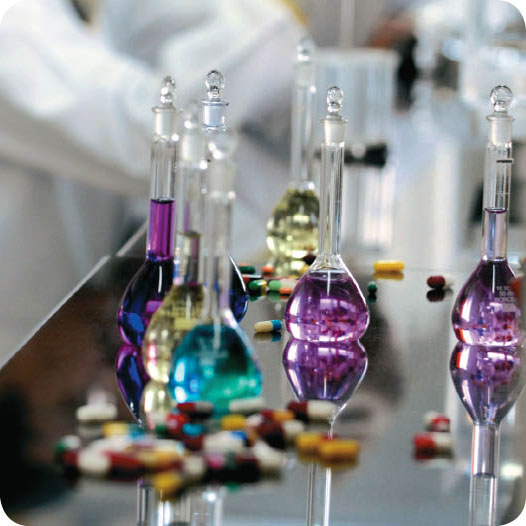
drugstr
Central, NJ
Male, 61
I have worked as a drug discovery scientist for over 30 years performing experiments to help identify novel chemical compounds for their potential in treating diseases in the areas of infection, inflammation and cardiovascular disorders. I have a good familiarity with the entire process from discovery to safety to clinical trials and even marketing. Ask me about the business of Big Pharma. I’m happy to comment on any and all hot-button issues. My opinions are quite often not pro-business.
My understanding of the acceptable limits of variation in dosage units is specified for each drug as part of the FDA review process. The range limit is typically 80% to 130% of targeted content. In order to guarantee keeping within that range the manufacturer will shoot for statistical variation of no more than 10% and may bump a little to the higher end to increase shelf life. I could not say for sure if the possible variation in Adderall content could be therapeutically detectable as you suggest, but it would not be expected based on general pharmacological principles. That said it remains possible.
Not a big difference. Broadly defined, a pharmacologist studies the behavior of drugs in the body. That ranges from where the drug goes, how it leaves and how well it interacts with its target. Once determined in humans to behave satisfactorily, medical folks take over (clinicians) to evaluate disease efficacy. For example, the pharmacologist determines how well it lowers cholesterol. The clinician determines how well it treats heart disease. As a prerequisite to human studies, my role as an analytical biochemist in early drug discovery supported studies of pharmacology in animals. I measured drug levels in samples as well as biomarkers related to the action of the drugs.
Nonsense.
My advice to you is to first not think of this “job” as a job, but rather as a career. By that I mean consider that most pharmaceutical research is broadly science based. Don’t limit your thinking to the biology examples that I described. You can be a chemist or a statistician or even a doctor. Go to a university with a strong science reputation and get a B.S. in biology, chemistry or math. Decide where your strengths and passions lie and follow them. The list is long of things you can major in. There’s biochemistry, physiology, microbiology, cell biology, genetics, synthetic chemistry, analytical chemistry, statistics, animal science, etc. My recommendation is to go to graduate school for a masters or a PhD or alternatively get a job in an academic lab. Develop your skills, expertise and reputation. Then seek your high paying job in industry. The more experience and credentials that you bring to the table, the more influence you will have on choosing the work that you do. If you get a job right after college it will be just a “job” and your responsibilities will be task oriented. Come in with expertise, be it technical or academic, you will be project oriented. That’s where the rewards are.
Waitress
 Are you instructed to "push" certain menu items that are at risk of going bad?
Are you instructed to "push" certain menu items that are at risk of going bad?
Call Center Employee (Retail)
 What's the meanest thing someone's said to you on the phone?
What's the meanest thing someone's said to you on the phone?
Flight Attendant
 How do you handle belligerent passengers?
How do you handle belligerent passengers?
Pharma executives LOVE credentials! They generally tend to be quite risk averse so multiple certifications induce greater confidence in a hiring manager’s decision to support the candidacy of an individual. It sort of lessens the burden of accountability (ass covering). Of course this is not a sound principle as it often leads to failure. Nevertheless, more diplomas might get you the interview, particularly in this era of downsizing and reorganizing. I am not advocating that you seek a dual degree for that reason. I don’t know anyone with a PharmD/PhD dual degree and I’m not quite sure where such a person would fit in my company. In the lab environment in which I operate PhDs typically are the project leaders with some MDs in that role. No PharmDs. In the clinical areas it’s all MDs. A PharmD in my company might find a role in Drug Metabolism, Safety Assessment or Regulatory Affairs or maybe even Marketing. So it really depends on what you want to do. If you want to discover new drugs at the bench, get the PhD and become a subject matter expert. I would argue that your research project for the dual degree may not train you adequately for discovery research. If you’re more interested in taking new discoveries forward to the clinic the dual degree might be helpful.
I don’t know what kind of career advice I could give you. PT and biotech seem rather disconnected. Bioengineering could serve you in developing therapeutic devices. Most scientists turned entrepreneurs often stay involved in research in a management role and provide intellectual input as well.
I am not an academic so I can’t say one way or another if you would qualify. My guess is that you might find a place, but may have to take a more extensive set of basic courses in order to elevate yourself to the level of other students in the program.
-OR-
 Login with Facebook
Login with Facebook (max 20 characters - letters, numbers, and underscores only. Note that your username is private, and you have the option to choose an alias when asking questions or hosting a Q&A.)
(A valid e-mail address is required. Your e-mail will not be shared with anyone.)
(min 5 characters)
By checking this box, you acknowledge that you have read and agree to Jobstr.com’s Terms and Privacy Policy.
-OR-
 Register with Facebook
Register with Facebook(Don't worry: you'll be able to choose an alias when asking questions or hosting a Q&A.)